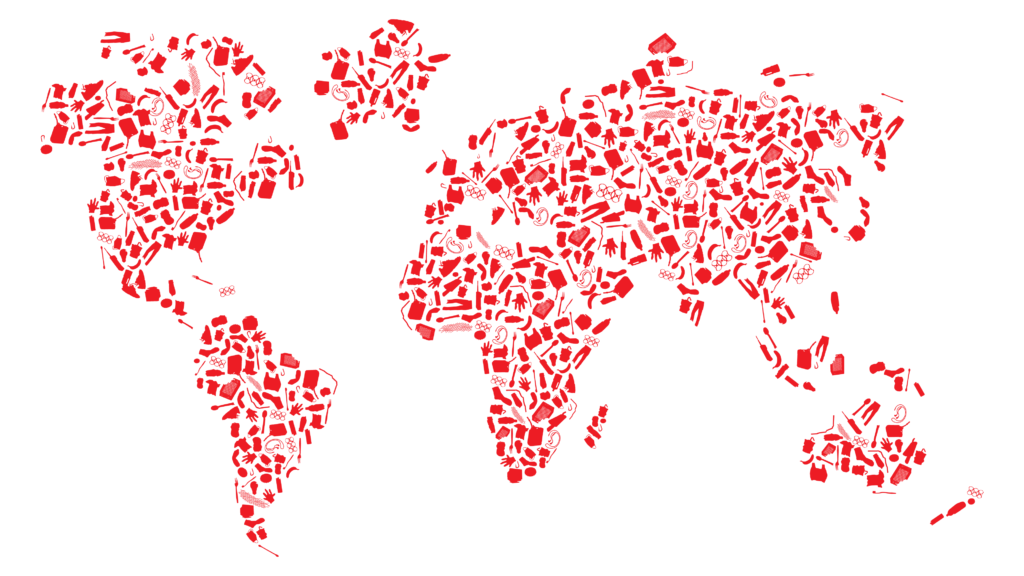
The selection process
All submissions for the No waste Challenge will be processed and reviewed after the closure of the open call. And we are not doing this alone! We’ve asked experts all over the world to join us from different fields of expertise such as the creative industry, waste, circularity and social entrepreneurship. The selection committees have the difficult task in narrowing all submissions down to the final list of nominees. Learn more about our global selection committee below or check our city committees for Amsterdam, Delhi, Nairobi, Mexico City, São Paulo & Rio de Janeiro, and Tokyo.
GLOBAL SELECTION COMMMITTEE
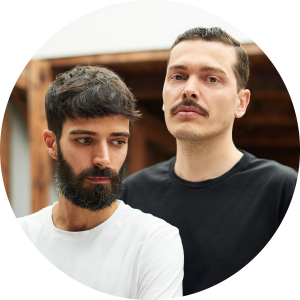
FormaFantasma is a research-based design studio investigating the ecological, historical, political and social forces shaping the discipline of design today. Whether designing for a client or developing self – initiated projects, the studio applies the same rigorous attention to context, processes and details. FormaFantasma’s analytical nature translates in meticulous visual outcomes, products and strategies.

Bezawit Eshetu is an Ellen MacArthur Foundation Circular Economy Pioneer, 2020. Trained as a Biologist and Chemist at Addis Ababa University, she has more than 15 years of experience in policy and program management in the fields of environmental management, sustainable development, waste management, resource efficiency, cleaner production, Green Growth, circular economy, and impact investment with different UN agencies and in the private sector. Bezawit Eshetu is currently working at African Circular Economy Network.
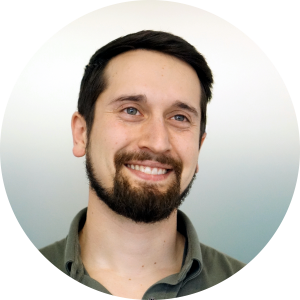
Aaron Nesser, Co-founder and CTO of AlgiKnit, is a sustainability-driven scientist and designer working to transform the textile ecosystem with compostable kelp-derived yarn. He completed his Masters of Industrial Design at Pratt Institute, and his Bachelors of Biology at Beloit College. His work has been exhibited around the world, from New York, to Dubai, to Cape Town.

Seetal Solanki is a translator of materials. The Founder and Director of Ma-tt-er, a relational practice focused on building and bridging kinships between ourselves, materials, the immaterial and virtual. Her work at Ma-tt-er reorients mindsets, behaviours and mechanisms towards futures that are caring and respectful by providing ecological and nuanced strategies that are biodiverse, inclusive and response-able. Author of “Why Materials Matter” (2018).

Dr Barbara Predan is a theoretician, lecturer, author, and assistant professor at the University of Ljubljana Academy of Fine Arts and Design. She is also a co-founder and leader of the department of design theory at the Pekinpah Association, and the director of the Institute of Design. She has published several professional and scholarly articles and is the author or co-author of six books, has edited ten books and curated twenty exhibitions.

Carol Piccin is an entrepreneur, specialized in Environmental Management and in Business Sustainability Management. With over 16 years of experience in project management with a focus on reducing environmental impacts and fostering the circular economy, today she runs MateriaLABDesign, helping brands develop sustainable projects and have good communication, adding market value and acting with educational purpose.

Demetrios Fakinos is the co-founder and director of the European Design Awards and the European Design Festival. Although his academic background is on business (with an MSc on HR) his interest has always lied in the field of the creative industries. Since 1998, among other things he has been publishing books and organising conferences and events on the various design disciplines, with an emphasis on communication design. Demetrios is a member of the BMW Foundation Herbert Quandt Responsible Leaders Network
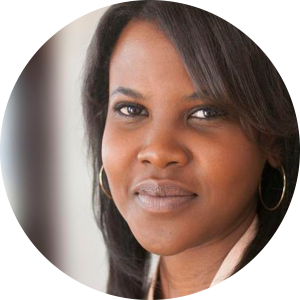
Corinne Gray is an MIT Sloan Fellow who is obsessed with solving the world’s biggest people and planet problems through entrepreneurship and design. She’s the Director of Global Portfolio & Investments at Unreasonable Group where she’s focused on building a diverse community of investors backing companies that are changing the world. She’s also the Co-founder and CEO of Uncomfortable Revolution – a Diversity + Inclusion focused lifestyle brand. Before starting Uncomfortable Revolution, Corinne worked at the UN Refugee Agency, leading strategies to engage communities in refugee-led innovation.
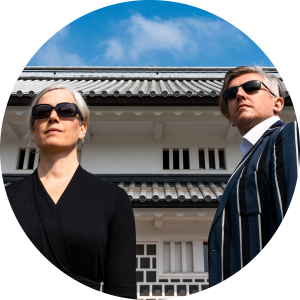
honey & bunny
Sonja Stummerer and Martin Hablesreiter studied both architecture in Vienna, London, and Barcelona. After graduation they worked in Tokyo, before founding the transdisciplinary studio honey & bunny in Vienna. Their work is based on social and ecological sustainability. Honey & bunny consider themselves as inbetweeners. They do publications, installations, exhibitions, performances and design.

Ineke Hans designs furniture, products, exhibitions and spaces with content, explores new design strategies and works for clients, communities and leading international manufacturers on product typologies that fit our current social context. After Graduating at RCA London she set up her studio in Arnhem (NL) in 1998. In 2015 she moved back to London to set up London Salons, exploring: ‘The future of furniture design & the changing position of the designer’. Since 2017 she is professor Design & Social Context at the UdK Berlin.

Chani Perera is a Graphic Designer and a Design Educator based in Sri Lanka with 10 years of industry and academic experience. She initiated ‘Riot House’ – a graphic design incubator to create responsible design ambitions with clients and designers in the local sphere. After teaching and heading the Visual Communication department, she is now the Strategic Advisor for the undergraduate program at the Academy of Design – Sri Lanka’s pioneering design educator and trusted creative authority for design led industries. Furthermore, having undergone many sustainability and circular design training, she aspires to equip future designers in Sri Lanka as a conscious problem solving community.

Jeroen Wouters has earned his degree in food microbiology at Wageningen University & Research. This is where he found his true passion: to take scientific discoveries and make those available to all. His work revolved on food, taste, nutrition and health. Another driver is to bring together organisations to achieve innovation and growth. As of 2014, Jeroen is devoting his skills, experience and sizeable network to the success of Foodvalley NL. Jeroen also holds the position of innovation manager for sport and nutrition at the Dutch Olympic training facilities at Papendal.

Joost de Kluijver won the Dutch Circular Award in 2018. His company, Closing the Loop, developed waste-compensation, a service known for its pragmatic approach towards circularity, for its collaboration with leading tech brands on ‘waste-neutral’ electronics and for its ‘e-waste’ reduction results in emerging markets.

Kelvin Kaari is an insights associate at Matchboxology, Africa’s first human centered design consultancy based in Johannesburg. He supports the analysis of data across multiple project verticals, driving insights that form the foundations of impactful solutions to pressing system challenges. Kelvin holds a B.A in Public Policy & Law and French Studies from Trinity College (Hartford, CT). Outside of work, Kelvin likes to attend intimate live music/comedy events and culinary immersions.

Sara Landeira is a designer and partner at What The Studio, where she develops visual communication projects that can turn into any form, format or environment. Through a concept-driven approach, she creates playful and distinctive visual systems and striking images that send clear messages across. She prefers to work for meaningful things such as art, culture and social justice.

Kai Pruiksma works as a Relations Liaison at Foodvalley NL, an independent platform for innovations and the transition of the global food system. In her role, she accelerates the implementation of groundbreaking innovations by setting up multi-stakeholder partnerships with businesses, research institutes, governments, and investors. Kai combines her extensive knowledge of Nutrition and Health and her aspiration of bringing real positive change in the way we produce and eat our food.

Bas Raijmakers is the co-founder and director of STBY since 2003, an Anglodutch design research studio that specialises in explorative, foundational research for wicked problems. With a background in social sciences and design, Bas has built a practice and studio of 10 people that extends into a network of similar studios around the world in 23 countries, the Reach Network.

Dr. Kate Goldsworthy is a designer and circular economy academic working to bridge science, industry and design through multidisciplinary research. Having worked in the design industry for over ten years, in 2012 she completed the first UK practice-based doctorate focused on ‘designing textiles for chemical recycling’. Since then she has continued to explore future manufacturing and recovery contexts for the circular textiles economy. She advises on industry boards and policy groups and her design work has been exhibited & collected internationally.
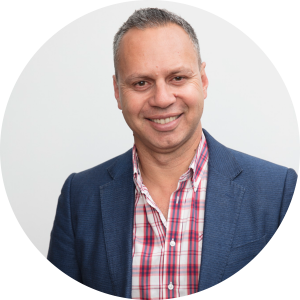
Wayne Denning is a proud Birri Gubba and Guugu Yimithirr – man from Queensland, Australia. After a decade working on landmark government policies in Native Title and Land Rights, in 2006 Wayne set up Carbon Creative, a social change creative agency to help tackle some of the today’s toughest challenges facing the marginalised to the mainstream. Wayne’s philosophy – to use simple clever creative to empower versus judge and question versus accept. A don’t settle but challenge, daily mantra.

Kate Okrasinski is an innovation and strategic design practitioner with a Masters in Global Health. She is the Director of Innovation at MAKE Studios Ltd Hong Kong. She uses her background in participatory research, trans-disciplinary collaboration and systems thinking to connect and channel diverse expertise into meaningful social and business outcomes. Thriving in complex systems in challenging environments, Kate cultivates clarity, confidence, and collaboration at an individual, team, and organisational level. An important aspect of her work is bringing clients and service providers on a journey of personal and organisational transformation.

Lisseth Cordero is an Industrial Engineer with professional experience on statistics. She worked at Nielsen, Pernod Ricard México and Tequila Cuervo. In 2016, she founded Ecolana, the first platform in Mexico that helps you to recycle more than 26 types of waste. The impact annually reaches 190,000 consumers, 1,200 collection centers, more than 10 brands and 3,000 tons recycled. In 2019, she won the clean energy challenge in Mexico City. In 2020, she was selected as a fellow of Cartier’s Women Initiative and this year, she was selected by Forbes as one of the 30 business promises in Mexico.

Magda Kochanowska is a design expert and author of articles and other publications in books, magazines and exhibition catalogues, always on issues related to the design discipline. Magda is a product and visual communication designer by education. She is a co-founder of DESIGN PROVISION. She specializes in planning and implementing design processes, especially in the area of Service Design.

Manon Klein is the Innovation & Acceleration Lead at Impact Hub Amsterdam. Building a sustainable economy is gaining enormous traction. For the past 15 years, Manon has contributed to these developments by supporting innovative entrepreneurial solutions to global challenges: impact entrepreneurship. She has helped build new business models, partnerships, and networks of impact investors and entrepreneurs. On the selection committee, Manon looks for potential in both business and social impact.

Natalie has lived in Turkey, Kenya, US, Tahiti, Australia, France and now calls Singapore home.

Richard Van der Laken is a creative director based in Amsterdam. He met Pepijn Zurburg while studying at the Utrecht School of Art and Sandburg institute, and together they formed De Designpolitie – a renowned visual design agency, graphic design collective Gorilla, and What Design Can Do. Since forming, they’ve worked with many partners from Rabobank to Artis Zoo, won numerous awards, and feature in the permanent collection of galleries such as the Design Museum London and MoMa New York. At WDCD, they’ve created multiple design challenges, publications, and events hosted across Amsterdam, Brazil and Mexico. Richard is serving the global selection committee to represent What Design Can Do.

Mats Widbom is the CEO of Svensk Form (the Swedish Society of Crafts and Design). Mats Widbom has many years of national and international experience in the museum sector and public diplomacy. He holds a degree of architecture and is well-versed in the area of design, having held positions including head of design, architecture and urban environment during Stockholm’s year as Cultural Capital of Europe in 1998, artistic director at the Swedish Traveling Exhibition and cultural counsellor in Washington DC where a series of design exhibitions were held at the then newly opened House of Sweden. Most recently, Mats Widbom was in Paris as director of the Swedish Institute, as well as cultural counsellor at the Swedish Embassy between 2012 and 2017.

Monish Siripurapu is an entrepreneur and a practicing architect from New Delhi. He graduated with a PG Diploma from the Institute for Advanced Architecture of Catalonia in 2015 and founded the firm Ant studio in 2010. He believes that architecture is a balance of nature, sustainability and emerging technologies. A large segment of their work involves experimentation with Terracotta and re-adapting traditional techniques in his products.

Oskar de Roos works for WWF Netherlands as the plastic lead. Plastic waste is choking our planet – polluting the air, water, and soil. This continuing waste crisis spreads to every corner of the globe. WWF is leading NGOs to help reimagine how we design, dispose, and reuse the plastic materials. Oskar’s mission is to eliminate plastic waste from nature, with a specific focus for the plastic waste in our oceans. The WDCD challenge is crucially important to make innovative ideas a reality!

Parvinder Marwaha leads on design at the British Council, with a focus on developing opportunities with Europe and South Asia. She runs part of ‘Making Matters’, a global interdisciplinary programme addressing circular design and making. She seeded the EU-arm ‘Circular Cultures’ across 8 countries in Europe, with partners including the Ellen MacArthur Foundation, The Onassis Foundation, City of Warsaw, WORTH Partnership Project and Romania Design Week. She has a special interest in supporting equality, diversity and inclusion.

Pim van Baarsen is the co-founder of Super Local. With every project they highlight local innovation and ideas, hire local talent and use local materials. In this way, they develop new and impactful solutions that are rooted in the needs and desires of the community, support the local economy, create local ownership, and minimize the environmental footprint by limiting imported materials and products. Wherever they work in the world, they always use this method and facilitate an equal exchange of knowledge and experiences.

Inger van Dooren As an architect in modular timber construction, Inger is committed to circular construction with sustainable materials. In addition, on a personal level she is very aware of the waste she produces as a person. We are faced with a gigantic task to reduce this quantity and Inger believes that designers play a very important role in this. She looks forward to seeing all of the great submissions!

Rutger de Rijk coordinates and runs different innovation & acceleration programs at Impact Hub Amsterdam. He’s no stranger to impact entrepreneurship, having chosen the entrepreneurial path soon after university. His favourite thing is to help fellow entrepreneurs reach their goals, by bringing them together and ensuring they feel comfortable to express their biggest dreams.

Sophie van den Berg is a International Solid Waste Expert and Plastic Recycling Business Adviser at WASTE. Sophie is a chemical engineer and holds an MSc degree in Environmental Science. Her passion is to grow plastic recycling companies that generate social and environmental impact in Africa and Asia. She identifies early-stage impact businesses, supports them to be viable for scale and investment-ready and matches them with investment funds.
